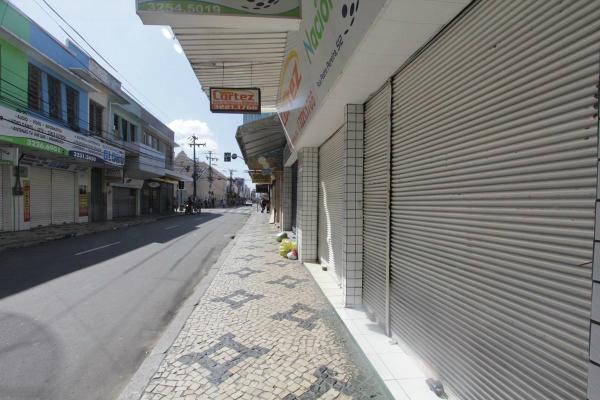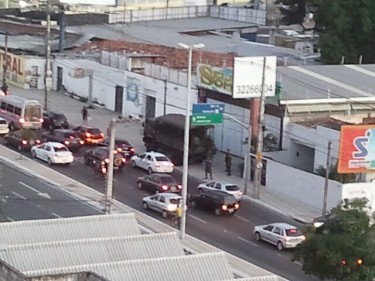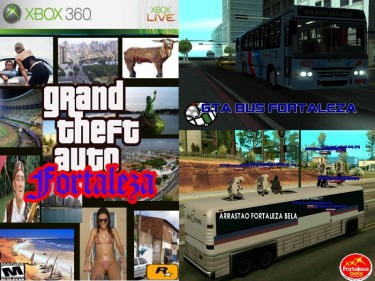–
[All links in this post lead to Portuguese language pages except when otherwise noted.]
On the eve of the New Year's festivities, the population in the state of Ceará, Brazil, was taken by surprise with a strike by the military police and firefighters. Propagating both facts and rumors surrounding the violence, the hashtag #CaosEmFortaleza (ChaosInFortaleza) has brought together general grumbling, formal complaints, ironic musings and misinformation on the social and political atmosphere in the capital city of Fortaleza.
On the evening of December 29, 2011, military police and firefighters assembled in the barracks of the military police's Company 6 of the 5th Battalion, located in Fortaleza's Antonio Bezerra neighborhood, and formally commenced the strike. They occupied the locale and called for professional compensation in terms of both education/training as well as higher salaries.
Fearing violence, Governor Cid Gomes declared a state of emergency and called in the Army and the National Guard to patrol Fortaleza. The governor is currently in the capital city, but he has not made any public appearance or statements to date. Negotiations have taken place between the representative of the Association of Public Security Professionals (APROSPEC in Portuguese), the federal attorney general, the state attorney general and the president of the Ceará Chapter of the Brazilian Bar Association.
Panic escalates with the spread of facts and rumors
On January 2 and 3, 2012, Trending Topics Brazil registered the following top hashtags/expressions from the citizens of Fortaleza: #CaosEmFortaleza (ChaosInFortaleza), #aculpaedogovernador (itsthegovernorsfault), and the expression ‘Cid Gomes.’ Throughout January 2, reports shared on social networks and the media referred to attacks on restaurants and stores, and to looting along the main avenues and in the downtown area. There are still questions being raised as to the extent of the situation since some of the images and information that has been shared have proven to be false.
Student Débora Vaz (@deboravaz) tweeted a message pleading caution:
Todo cuidado é pouco na hora de separar o que está acontecendo de verdade e o que é histeria coletiva. #CaosEmFortaleza
A photo of thieves on motorcycles, guns in hand, was widely circulated on Facebook, with claims that the photo had been taken somewhere in the depressed outskirts of Fortaleza. Hours later, the truth emerged: the photo had been taken in August 2010 in Rio de Janeiro during a clash between the police and drug traffickers.
Twitterer Thallis Cantizani (@tcantizani) drove through the Barra do Ceará neighborhood with a friend to investigate the alleged situation of shootings and attacks in the area. She found a very different situation and satirically reported her findings via video:
Galera, eu rodei por Fortaleza/Barra e não vi isso tudo que vocês estão dizendo, me desculpem #CaosEmFortaleza t.co/pK4m0qz5
Satirical responses to the situation include remarks by @Rezenha_de_Gil, who ironically tweeted that #Chaos InFortaleza was likely a name for a music band playing the local musical genre of forró, and by Gustavo (@gustavo_ns) joking about Twitter traffic with the governor's name, which remained a trending topic for nearly an hour. He made a reference to the rumor that had surfaced in 2010 regarding the expression ‘Cala Boca Galvão’ (Shut Up Galvão), also reported [en] on Global Voices:
Cid Gomes is a rare bird of the interior of Ceará at risk of extinction.
On the morning of January 3, filmmaker Juliana Ribeiro (@Juju_Ribeiro) complained:
Gente, sério: galera faz piada, mas o quão absurdo é a cidade inteira parada c/ medo d assalto s/ nenhuma notícia d negociação p/ resolver?
Reporter Fábio Campos (@fabiocamposm) questioned the governor's lack of engagement:
O governador erra ao não se pronunciar. Prevalece um vácuo de autoridade.
Student Camila Mont'Alverne (@camilambpp) condemned the government of Cid Gomes, which was criticized in 2011 for its reaction to the teachers’ strike and also for its policy of removing communities in expectation of the 2014 World Cup.
Twitterer Bárbara Alencar (@BabiAlencarCE) related the situation to the apocalyptic theories surrounding 2012:
Dizem que o mundo acaba em 2012…tinha que começar logo em Fortaleza? :( #CaosEmFortaleza
January 3, the day Fortaleza stood still
If many reports were proved false, many public figures provided first hand reports that served to misinform the public and create more panic. TV reporter and anchorwoman Maísa Vasconcelos (@maisanablogo) tweeted:
Assalto, tiros e terror na Frei Mansueto, Varjota #Fortaleza. Eu vivi.
Writer Socorro Acioli (@AcioliSocorro) tweeted what she had seen from her apartament:
Arrastão na via expressa. bandidos param os carros com pedradas, mandam descer. Não é boato,estou vendo da minha janela.
Stores in the city's downtown area closed after reports of looting and attacks. The area, which is generally packed with people and street vendors, was empty, as seen in the photo tweeted by Jarbas Oliveira (@jarbas_oliveira):

Photo shared on Twitter by @jarbas_oliveira: "Pedro Pereira Street in downtown Fortaleza today at 2:28 p.m. It looks like the days everyone takes off when Brazil plays in the World Cup."
Facebook user Sabryna Esmeraldo tried to raise awareness after everything she had seen and heard from friends:
De boa, quem estiver dizendo que é só boatos e terror deve estar em casa, tranquilo. Várias lojas fechadas no centro, quase todas na Dom Manoel fechadas, ruas desertas, helicopteros e policia para o arrastao do Mercado Central, ônibus ameaçando parar (isso quem me disse foi um motorista de onibus), arrastao no HGF, tentativa no Cesar Cals, Shopping Via Sul fechado, lojas da aldeota fechadas, antonio sales e domingos olimpio tb. Essas todas ou eu vi ou pessoas realmente proximas me disseram. Não sei o quanto mais das outras coisas é boato, mas realmente to preferindo acreditar…
Effemberg (@Effemberg) tweeted the public's general impressions of January 3:
03/01/2012 o dia que Fortaleza parou #CaosEmFortaleza
Sociologist Márlia Paiva (@MarliaMaloca) stressed that, with the people bunkering down in their homes, the general 6:00 p.m. traffic simply ceased to exist:
Faltam 15min p/ às 18h e não existe nenhum congestionamento em Fortaleza.Conseguiram acabar com o caos do trânsito em Fortaleza.Como foi? =P

Márlia Paiva also posted on Facebook a photo she had taken on her cell phone of an army vehicle on Domingos Olímpio Avenue.
The repercussions of violence on everyday living
Given the threat of violence, post offices and some health clinics chose to stop operating for the day. The number of busses on the street decreased as of January 2, with bus drivers citing a lack of security on their routes and through neighborhoods marked as dangerous.
On January 2, the State Department of Justice declared the strike unconstitutional and ordered everyone back to work, levying a R$500 fine upon anyone who chose to defy the order. Nevertheless, the strike continued.
Early in the afternoon on January 3, the Ceará Chapter of the Brazilian Bar Association (OAB-CE) publicized a note clarifying the strike. The note stressed the legitimacy of the claims put forward by the police officers although it criticized participation by all officers on account of having caused trouble and bringing danger upon the city's citizens. While the impasse continues, the population remains reclusive, afraid of going out in the streets.








2 comments